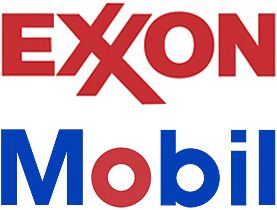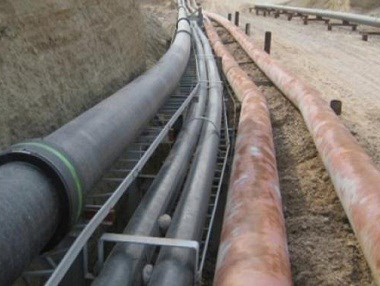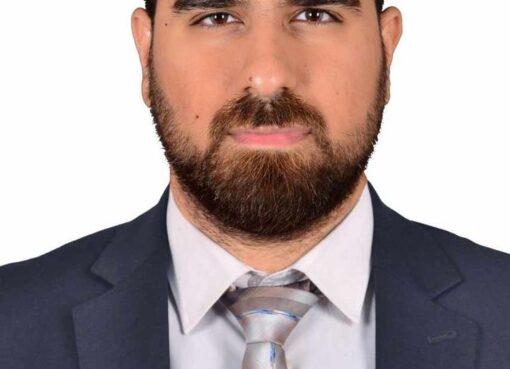At last Exxon Mobil corporation have made up their mind and opted to sell their 60% share in West Qurna 1 (WQ1) oil field in Basra, rather than cancelling their recent exploration/production contract in Kurdistan. The Company has already informed the Iraqi Government of their wish to do so, and Iraq has responded by accepting it, provided that the stake is sold to a company already pre-qualified by the federal Ministry of Oil.
The impending exit of ExxonMobil from Iraq represents a sad epilogue for a short lived relationship between a great oil company and an oil country that houses the second largest reserves in the world. This regrettable finale raises important questions as to what went wrong, who is to blame and what could be done to mitigating the situation?
The most important reason for what happened can be attributed to the relative economics between the Production Sharing Contracts (PSC) signed by International Oil Companies (IOCs) with Kurdstan Regional Government (KRG) and the Service Contracts (SC) signed with the Federal Government of Iraq (FGI). It is clear that KRG was prepared to give IOCs deals they cannot refuse. They agreed to give them production shares ranging from a minimum of 15% up to more than 35%, depending on the ratio of income to expenditure (R factor), and averaging about 20% of production. Additionally, IOCs make indirect profit from the windfall of higher oil prices, which have already doubled for early contracts, and from the improvement of the overall value of company shares, due to the registration of contracts’ production shares as additional company assets. In comparison the SCs signed with FGI offer fixed remuneration fee amounting to about $2/barrel, independent of changes in oil prices. They furthermore, cannot be registered as fixed company assets. Thus the lucrative nature of the PSCs coupled with the low/medium exploration risk, have initiated an “oil rush” into Kurdistan, starting with small/medium oil companies, and later on snow balling to involve major oil companies such as Hunt Oil (2007), Murphy and Marathon (2010) then ExxonMobil (2011). Others may follow. Indeed KRG have introduced a new type of partnership, so profitable for IOCs as to be unprecedented since the concessionary days of the first half of the 20th century. Of course it is a welcome development for IOCs, but on the other hand, it is problematic for host countries, as it is difficult to imagine that such generous contracts can easily be justified in countries where public opinion matters .The pertinent question now is whether this lucrative type of contractual relationship is here to stay or not? The answer is that it should not, if fair deals continue to be the norm of present day business.
Taking into consideration the relative merits of the two contracts, it is surprising and disappointing to see a super oil company, like ExxonMobil, abandoning big oil (WQ1 super giant field), in favor of risky exploration contract involving at best, relatively small oil. It is also sad to see them caught in the complex politics of the country.
Another reason for the exit of ExxonMobil from Basra stems from the failure of the Federal Government of Iraq (FGI) and KRG to agree on a common oil law regulating the oil industry of Iraq, hence leaving the door fully open for KRG to work independently from FGI and thus giving the impression that IOCs can safely ignore the objections coming from Baghdad, and that the status quo would eventually be accepted by Baghdad without penalty. The American oil companies seem to have arrived at this conclusion earlier than other big companies, as it is clear from Hunt Oil contract signed with KRG as early as 2007. It is interesting to note that Hunt’s contract included exploration blocks in disputed areas, as did ExxonMobil contract four years later. In short, the American oil companies, and later other international companies, have read the situation to be in favor of KRG, and that it is safe to defy the central government of Iraq, despite the warning that action will be taken against oil companies working in Kurdistan.
Recent developments have shown that FGI was not bluffing. ExxonMobil was firmly told to make a choice between WQ1 and the exploration contract in Kurdistan. ExxonMobil tried first, to buy time hoping to keep both contracts, but when it became clear that they must make the choice soon, they opted to exit from WQ1.
Now that Exxon made the choice, the question is: did they make the right choice, taking into consideration they might not be allowed to work in disputed land? The other important question is whether ExxonMobil would find commercial oil in their contracted blocks, and if they do, would it be big enough as to compensate for WQ1 huge reserves, estimated at 9000 million barrel, given that exploration’s success to failure ratio is estimated to be about even? These are questions only time can answer.
One more reason for ExxonMobil exodus is related to investment environment which is generally better in Kurdistan than in the rest of Iraq. For example security is much better in Kurdistan, investment laws are more liberal, red tapes are shorter and even corruption seems to be smoother and limited to top levels rather than involving all levels as the case elsewhere in the country. We hear about frustration and complaints from the contractors working with the federal Ministry of Oil. Complaints include but not limited to long delays in securing visas, work permits, due payments, required information , required decisions, comments on plans and technical reports, approval of plans and reports, vetting cost figures, etc. Poor investment environment together with inadequate oil sector, made it easier for ExxonMobil to make the hard decision of leaving its huge stake in WQ1.
The question worth pondering about is how to avoid the exit of other companies, e.g Total from Halfaya field and Gasprom from Badra field? Aside from enacting an oil law, improving investment environment and quickly up-lifting the proficiency of the oil sector by hiring good oilmen from the international market and from amongst ex Iraqi professionals, it is time to admit that what happened in Kurdistan cannot be ignored. IOCs now are in a better position to pressurize FGI for better remuneration. Accordingly, it is prudent to consider the feasibility of making revisions, with a view to standardizing investment yardsticks (such as IRR and Present Value as percent of total PV returns) so as to be within a fairly acceptable range for all contracts. Priority should be given to revising contracts with remuneration fee less than $2/barrel, e.g. WQ1, WQ2 and 2nd round contracts, namely Majnoon, Halfaya and Gharraf fields. This may at least help in avoiding further exodus from Iraq.
*) Iraqi petroleum specialist
Copyrighte: Kamil Al-Mehaidi, Iraqi Economists Network 2013







Comment here